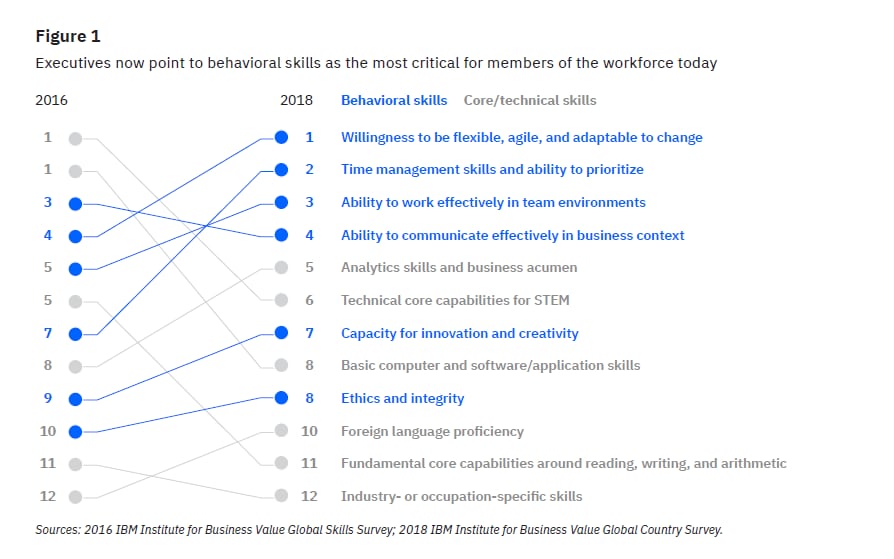A skilled workforce is the key asset of a competitive organisation. Until 5 years ago, the way to ensure such a workforce was to equip staff with digital and technical skills. The focus has since shifted: as IBM’s research points out, critical to the future of organisations are behavioural and not technical skills (Figure 1). These are what we’re used to calling ‘soft skills’, the intangible, human-centered, notoriously difficult to define or measure skills like ‘time management’, ‘teamwork’ or ‘effective communication’.

This changing need – from the technical to the behavioural – has seen a necessary questioning and reframing of the concept itself. Soft Skills became Power Skills. This rebranding can be understood in several ways. For one, it is a signal to organisations that they need to invest in building their talent’s behavioural repertoire if they are to gain or retain power in the market. Second, the move away from ‘soft skills’ – that have often been contrasted to ‘hard’ (aka technical) skills – acknowledges that power skills are complex and multidimensional (think of how many things you need to be good at in order to be considered an effective communicator).
The organisations that take on the challenge of embedding power skills into their business DNA are left with an exciting yet difficult issue: creating a learning-driven culture that incentivises and rewards people’s mastery of the complex, and this time not in the realm of machines, but in the realm of humans.
This article has been written by Marcela Fratescu.
Contact us















